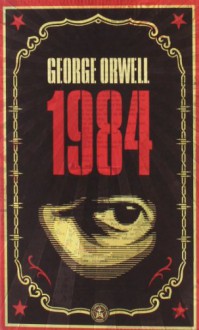
I write this review as a member of Rosie’s Book Review Team and thank Rosie and the author for providing me an ARC copy of this novella, which I freely chose to review.
It is difficult to describe the reading experience of Literature. I have read reviews comparing it to noir novels (absolutely, especially the voice of the characters and some of the situations), to Fahrenheit 451 (inevitable due to the plot, where fiction has been banned and nobody can possess or read books) and 1984 (although we don’t get a lot of detail of the way the world is being run, the sense of claustrophobia and continuous surveillance, and the way terrorism is defined are definitely there), and even Blade Runner (perhaps, although Literature is far less detailed and much more humorous). I did think about all of those while I read it, is true, although it is a pretty different experience to all of them.
Billy Stringer is a mixture of the reluctant hero and the looser/anti-hero type. The novella shares only one day of his life, but, what a day! Let’s say it starts badly (things hadn’t been going right for Billy for a while at the point when we meet him) and it goes downhill from there. The story is told in the third-person but solely from Billy’s point of view, and we are thrown right in. There is no world-building or background information. We just share in Billy’s experiences from the start, and although he evidently knows the era better than we do, he is far from an expert when it comes to the actual topic he is supposed to cover for his newspaper that day. He is a sports journalist covering an important item of news about a technological/transportation innovation. We share in his confusion and easily identify with him. Apart from the action, he is involved in, which increases exponentially as the day moves on, there are also flashbacks of his past. There is his failed love story, his friendship with his girlfriend’s brother, and his love for books.
The story is set in a future that sounds technologically quite different to our present, but not so ideologically different (and that is what makes it poignant and scary, as well as funny). People smoke, but you can get different versions of something equivalent to cigarettes, but they are all registered (it seems everything is registered). And you can drink alcohol as well (and Billy does, as it pertains to a hero in a noir novel). Transportation has become fundamental and it has developed its own fascinating-sounding technology (the descriptions of both, the vehicles and the process are riveting). It has to be fed by stories, by fiction, although literature itself has been banned. We get to know how this works and, let me tell you that it’s quite beautiful.
The book is short and I don’t want to spoil the story for readers, but I can tell you the writing is excellent and it is exquisitely edited. Despite its brevity, I could not help but share a couple of snippets.
“You like her?” he said. He was looking at the knife like a person might look at an especially favored kitten. “Been with me a long time,” he said. “She’s an old lady now. But she’s still sharp.” He looked up at Billy. “I keep her that way.”
In a day very generously populated with problems, Jane’s kid brother was Billy’s newest.
I loved the ending of the book. It is perhaps not standard noir, but nothing is standard in this book.
I recommend it to anybody interested in discovering a new and talented writer, with a love for language and for stories that are challenging, playful, and fascinating. A treat.


 Log in with Facebook
Log in with Facebook 









